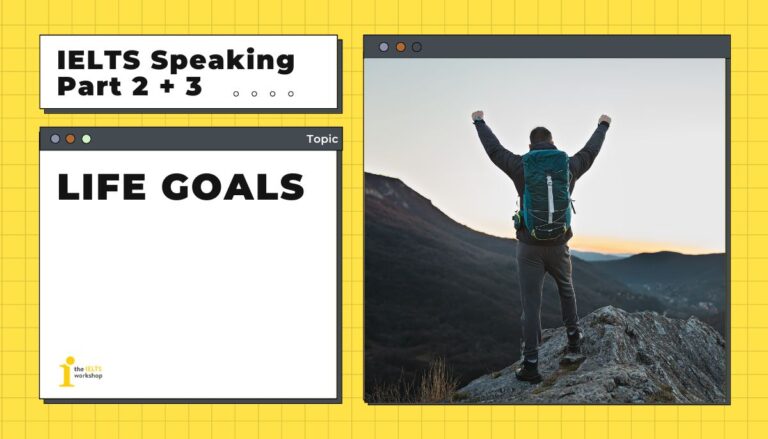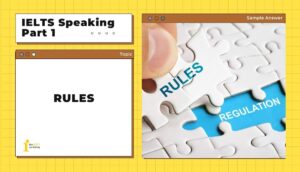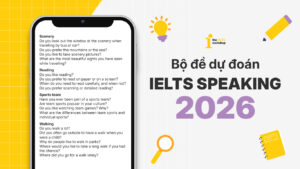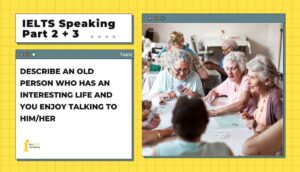Tại bài giải mẫu IELTS Speaking lần này, thầy Viết Dũng của The IELTS Workshop HN sẽ hướng dẫn bạn trả lời một số câu hỏi của chủ đề Describe something you did that made you feel proud trong IELTS Speaking Part 2 & 3. Cùng tham khảo sample, từ vựng và một vài cách diễn đạt ghi điểm trong phần thi IELTS Speaking nhé.
Part 2: Describe something you did that made you feel proud
Describe something you did that made you feel proud
You should say:
What it was
How you did it
What difficulty you had
How you dealt with the difficulty
And explain why you felt proud of it
Dưới đây là bài mẫu cho topic “Describe something you did that made you feel proud“.
1. Bài mẫu (Sample Answer)
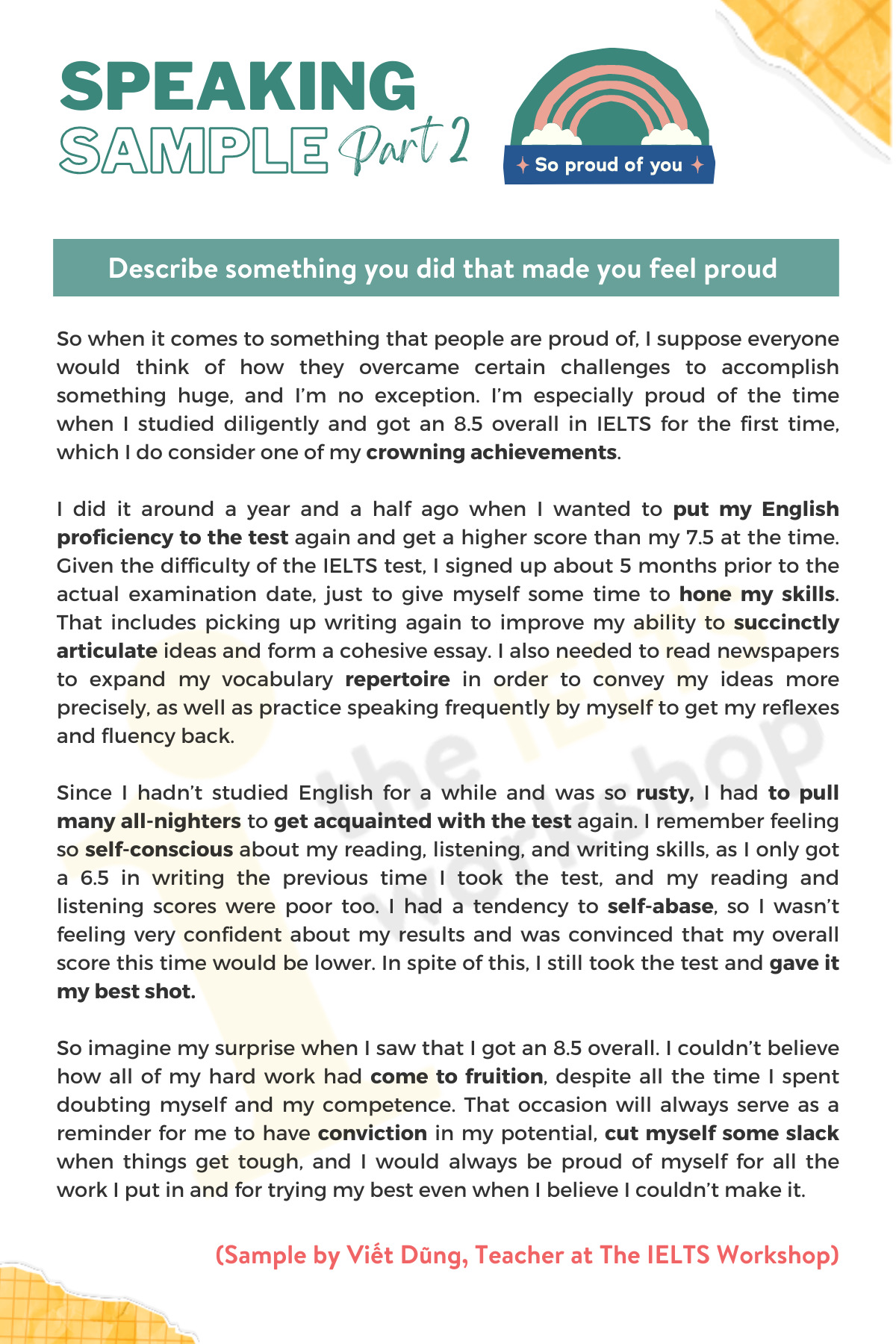
2. Từ vựng (Vocabulary Highlight)
- crowning achievement: thành tựu quan trọng, để đời
- put something to the test:
- hone (v) one’s skills: mài giũa, cải thiện kỹ năng
- repertoire (n): vốn, kho tàng gì đấy
- succinctly (adv): ngắn gọn, súc tích
- articulate (v): diễn tả, diễn đạt
- rusty (adj): xuống trình độ
- pull an all-nighter: thức xuyên đêm (để làm việc, học, etc.)
- get acquainted with something: làm quen với cái gì
- self-conscious (adj): tự ti, không tự tin
- abase (v): hạ thấp
- give something your best shot: nỗ lực hết sức, cố hết sức
- come to fruition: (thành quả) đơm hoa kết trái
- conviction (n): niềm tin
- cut yourself some slack: ít khắt khe quá với bản thân đi
Part 3 Sample: Life Goals
Bên cạnh Part 2, bạn hãy tham khảo thêm Part 3 cho chủ đề này nhé
1. Which one is more important, personal goals or work goals?
2. Have your life goals changed since your childhood?
3. Does everyone set goals for themselves?
4. What kinds of rewards are important at work?
5. Do you think material rewards are more important than other rewards at work?
6. What makes people feel proud of themselves?

1. Which one is more important, personal goals or work goals?
It all comes down to your priorities.
On the one hand, if you’re not career-driven, then personal goals would obviously take precedence over the other. You’d focus more on self-development and be more motivated to complete yourself in terms of your personality, and so on. On the other hand, if you’re an ultra-driven high-achiever, you’d definitely put a lot of effort into advancing yourself in the workplace.
However, one could say that personal goals are more holistic and can also align with career goals, and therefore, attaching some importance to personal development means that you also take your career seriously.
- comes down to something: mấu chốt nằm ở
- career-driven (adj): tập trung vào sự nghiệp
- high-achiever (n): người cầu tiến
- advance yourself in the workplace: thăng tiến ở nơi làm việc
- holistic (adj): toàn diện
- take something seriously: coi trọng cái gì
2. Have your life goals changed since your childhood?
Yes, they have, drastically.
I used to dream big back when I was a naive kid; I wanted to become a lawyer and fight the good fight to make the world a better place. But as I grew older, I lost a huge chunk of my naivety and realized that it was just a pipe dream. As a result, I am setting more realistic goals for my life and career. Now, I just wanna make a meaningful impact in my student’s life by improving their English proficiency and lead a happy & fulfilling life.
- a pipe dream: 1 giấc mơ hão huyền
3. Does everyone set goals for themselves?
Well, I can’t speak for everybody but I suppose the ultra-driven do have things they wanna achieve in life in terms of their professional development, relationship, etc. Maybe they wanna become a millionaire by the time they’re in their 40s, or marry rich and spend their old age living a jet-setting life to experience the best the world has to offer.
Those who are disoriented, however, often don’t have any aspirations. They tend to live in the moment rather than worry about the future. Those people usually just wing it and see where life takes them.
- ultra-driven (adj): có quyết tâm cao
- jet-setting (adj): du lịch nhiều bằng máy bay
- disoriented (adj): thiếu định hướng
- aspiration (n): khát vọng, ước mơ
- to wing it: ứng biến
4. What kinds of rewards are important at work?
Well, right off the bat, I’d say it’s money, the most crucial extrinsic reward of all. This could come in the form of a bonus, a pay raise, or even a paid vacation to an expensive destination. Nothing is more motivating than material rewards, so when an employee receives money for their excellent performance, it incentivizes them to work harder and be more committed to the company; consequently improving its overall performance and productivity. Many companies have achieved great deeds partly thanks to implementing a generous policy of extrinsic rewards for their employees.
- incentivize (v): khuyến khích
- great deed: những việc lớn
5. Do you think material rewards are more important than other rewards at work?
Well, admittedly, material prizes are a big deal for employees. We all go to work for the sake of money, so a financial reward would obviously be at the top of every employee’s list. However, it doesn’t mean that monetary rewards reign supreme. People crave more than monetary rewards. They also want proper recognition for their hard work and contributions to their companies. This makes them feel like they’re a valued member of the organization and improves their job satisfaction.
- a big deal: 1 cái gì quan trọng
6. What makes people feel proud of themselves?
A multitude of things, one of which is a sense of achievement. People need to feel like they’re doing something meaningful in their lives, and they’re not just wasting time running around in circles. So when they achieve something significant to them, it would definitely bring them some sort of gratification and a sense of pride. Examples of those things could be financial success or a good social standing that commands a lot of respect, prestige, and admiration.
Another thing could be self-actualization, like when people overcome some sort of seemingly insurmountable adversity and realize that they’re stronger than they think. That would undoubtedly fill them with pride in themselves.
- run around in circles: làm những việc vô bổ
- gratification (n): niềm vui
- insurmountable (adj): không thể vượt qua được
- adversity (n): nghịch cảnh
Bài mẫu bởi thầy Viết Dũng – Giáo viên The IELTS Workshop HN
Trên đây là bài mẫu cho chủ đề Describe something you did that made you feel proud trong IELTS Speaking Part 2 và Part 3. Để luyện tập nhuần nhuyễn cho topic này nói riêng và các topic khác trong IELTS Speaking, các bạn có thể đăng ký Mock test 1-1 tại khóa học Bổ trợ Speaking Mentor của The IELTS Workshop.


